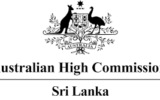Al Haj MAHIL DOLE , SSP Rtd
COLOMBO : Despite over LKR 1 billion in Zakath contributions annually, poverty rates among Sri Lankan Muslims remain disproportionately high. Zakath, an Islamic obligation designed as a system of wealth redistribution and social justice, has failed to achieve its intended outcomes in the local context. The core challenges lie in fragmented collection, weak governance, and short-term relief approaches that perpetuate dependence instead of enabling empowerment. A systemic reform of Zakath management is urgently required to transform it into a tool for sustainable poverty alleviation and community resilience.
- Background
Zakath is one of the Five Pillars of Islam, intended to:
Purify wealth,
Ensure redistribution to the poor and needy,
Reduce social inequality, and
Build community solidarity.
In Sri Lanka, Muslims—perceived as a business-oriented community—contribute generously to Zakath. However, the impact is not reflected in reduced poverty levels, improved livelihoods, or sustainable community development.
- Key Challenges
a) Fragmented Collection & Distribution
No unified national system; collection is done by individuals, mosque committees, and ad hoc charities.
Overlap and duplication in beneficiaries, while many deserving families remain excluded.
b) Short-Term Relief over Long-Term Empowerment
Funds are predominantly distributed as one-off food, clothing, or cash handouts.
Limited investment in education, vocational training, microfinance, housing, or healthcare.
c) Lack of Transparency & Accountability
Few Zakath-collecting entities publish audited financial reports.
Weak oversight allows inefficiency, leakage, and occasional misuse.
d) Perceptions vs. Realities of Wealth
While Muslims are seen as a prosperous community, wealth is unevenly distributed.
A small elite dominates trade and business, while a large segment struggles in low-income professions.
e) Absence of Strategic Vision
Zakath is treated as an annual religious duty rather than a collective socio-economic development mechanism.
Disconnect between religious obligation and modern financial governance.
- Where We Went Wrong
We reduced Zakath to seasonal charity rather than a structured system of justice.
We failed to create institutional frameworks for equitable distribution.
We neglected empowerment-based investments, leaving poverty cycles unbroken.
We allowed individualism and fragmentation to overshadow collective responsibility.
- Strategic Recommendations
- Establish a Central Zakath Authority
Mandated by law, guided by Islamic scholars, financial experts, and civil society.
Provincial branches to ensure reach and equity.
Independent auditing and annual public reporting.
- Shift from Relief to Empowerment
Allocate majority of funds for education scholarships, vocational training, business microfinance, and housing schemes.
Support healthcare initiatives (insurance pools, hospital funds).
Promote projects that enable recipients to become future Zakath contributors.
- Ensure Transparency & Accountability
Digital platforms for collection and beneficiary tracking.
Annual impact assessments and performance audits.
Public disclosure of fund allocation and outcomes.
- Integrate Zakath with Waqf (Endowments)
Use Zakath for immediate needs while leveraging Waqf for sustainable, long-term projects (schools, hospitals, community infrastructure).
Create a hybrid model of religious philanthropy and modern social investment.
- Community Awareness & Leadership Engagement
Educate the community on the transformative potential of Zakath.
Engage mosque leadership, business chambers, and professional bodies in collective planning.
Encourage wealthy elites to contribute beyond minimum obligations, viewing Zakath as a strategic investment in community upliftment.
- Conclusion
Right now:
People are giving → Wealthy Muslims are fulfilling their obligation.
People are taking → The poor are receiving, but often in a way that sustains dependence.
Poverty levels remain the same → The cycle is unbroken.
This is the paradox of Zakath in Sri Lanka: the system is functioning in form, but failing in impact.
And yes — it absolutely requires reforms. Without structural change, Zakath risks being reduced to an annual ritual that soothes the conscience of the giver but does little to transform the life of the receiver.
Why Reform is Needed
To restore Zakath’s Qur’anic purpose → which is to uplift, empower, and eliminate poverty.
To stop duplication and misuse → ensuring fairness and justice.
To turn dependents into contributors → so that today’s recipient becomes tomorrow’s giver.
To build dignity → poverty is not solved by endless handouts, but by creating sustainable livelihoods.
To safeguard trust → communities will lose faith if billions flow but results are invisible.
The Reform Question
So yes, the community must now ask:
Should Zakath remain a ritualized cycle of giving-and-taking with no impact?
Or should it be reformed into a professional, transparent, and empowerment-driven system that truly uplifts Sri Lankan Muslims?
👉 The answer is clear: Without reforms, Zakath will continue to circulate but never liberate.
A Call for Reform
Today, our Zakath system has become a paradox: People are giving. People are taking. Poverty levels remain the same. This cycle cannot continue. Zakath was never meant to be a ritualized handout. It was revealed as a transformative system of dignity, empowerment, and resilience.
If we are honest, this moment demands reform. We must build a collective, transparent, and empowerment-driven model that ensures Zakath uplifts the poor, not just sustains them in dependency. The choice before us is clear: either continue with business as usual—or reform Zakath into the system of justice it was always meant to be.
(Writer is – Mahil Dole SSP RtdSenior Law Enforcement and Defense Annalyst. Former Head of Counter-Terrorism – State Intelligence Service and First Secretary ( Defence ), Embassy of Sri Lanka in Thailand. Present member of the Sri Lanka Waqfs Board).













